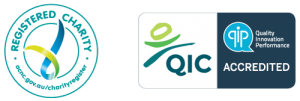The writer of this piece (we will call Michael) has never revealed to his employer anything about his OCD. When he told some of us at WayAhead of his experiences it was the first time that he had revealed to anyone in a professional setting – his story.
In OCD Awareness Week 2016, WayAhead hopes that more people can show awareness and consideration for people who have obsessive thoughts and compulsive actions – they often find it very distressing and not being able to speak about it openly means finding help is more difficult.
I thought I knew about OCD. It’s about hand washing, door checking and cleaning – ritualistic behaviours which seek to provide temporary relief to illogical and traumatizing thought processes. I knew I didn’t do that, so I thought I didn’t have OCD. What I experienced, and others with the same diagnosis experience, was an extreme inner trauma, with none of the ‘usual’ external OCD traits.
All the time I didn’t have a diagnosis it was just me. It was simple. I had constant horrifying thoughts which meant I was a bad person. Really bad, the very worst kind. I now know I wasn’t and I am not. I had what is known as Pure Obsessional OCD.
People with this diagnosis report experiencing obsessions without observable compulsions or actions. These obsessions often manifest as intrusive, unwanted thoughts, impulses or “mental images” of committing an act they consider to be harmful, violent, immoral, sexually inappropriate, or sacrilegious.
I told my then long term girlfriend about these terrifying thoughts, and the anxiety it was causing. She didn’t understand and neither did I. I couldn’t blame her for leaving.
I rebuilt my life and met the woman of my dreams, we got married soon after. But the unwanted thought process returned. It, (or was it I?), seemed determined to ruin everything again. I was stuck, I didn’t want to explain for fear of losing everything and I didn’t know what was happening. Nor did I want to confront it. So I over ate, smoked too much, became needy, anxious and depressed. I couldn’t find a way out.
But I got better, I became well.
My wife’s spoke to somebody who said I had Pure Obsessional OCD. It was text book stuff, an open and shut case. It’s all too obvious in hindsight. The rumination, the constant churn of damaging circular thoughts, were ever present. Things were made worse by the fact that I would actively try to combat it by trying not to think about something. This would in-turn fan the fuel enabling the OCD to seek out the most damaging thought processes through an accelerated process of trial and error. Pure Obsessional OCD can be like nightmare playing it your head, you want it to switch off but you don’t want to tell anyone for fear of it being misinterpreted, and what that might mean.
I’ve since learned that the human brain naturally generates nonsensical, bizarre and Ego-dystonic thoughts (thoughts that are the opposite of a person’s true nature, desires, values, and self-image). People with Pure Obsessional OCD just respond to this brain activity differently, assigning these random thoughts undue significance and then worrying about them.
Finding out I had a condition that could be treated was a huge relief. My wife, a truly amazing woman, realised the pain I was in. She forgave me for being so unreasonable and difficult to live with (my depression had made me short tempered and reclusive). With the guilt lifted, we could move forward.
Cognitive behavioural therapy (CBT) a form of psychotherapy, worked to change the unhelpful thinking processes. I also found great strength from the philosophy of a quiet mind, which teaches that letting go of thinking reveals our innate wellbeing.
It wasn’t me it was my OCD. This was a mantra that I repeated to myself. It allowed me to distance myself from ‘the thoughts’ which were not ‘my thoughts’. There was a big difference, I didn’t have to own them. They weren’t mine. Thoughts are like buses, loads will turn up, yet you are not obliged to jump on board, especially if you don’t like the look of where they are going. I eventually learned to disengage, to let them pass.

